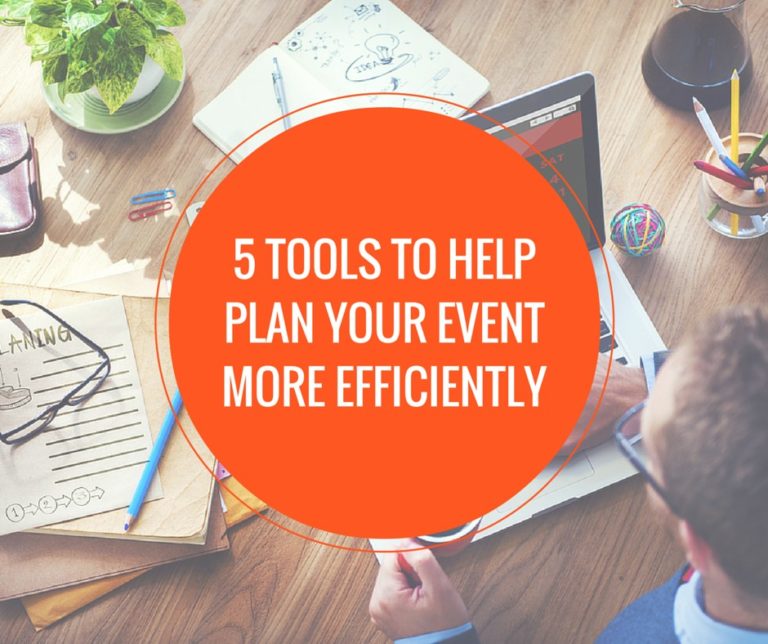Event pricing can be challenging, especially when you want to ensure a high revenue while providing a price point that consumers are willing to pay for. Pricing an event too high can lead to a low turnout, and pricing an event too low can drastically decrease your overall profit.
With several factors to consider in creating a pricing strategy for an event, it’s no wonder that 75% of event organizers have difficulty pricing their events. Keep reading to learn more about pricing strategy, how to create a lucrative one, and what mistakes to avoid when pricing your next event.
What Is an Event Pricing Strategy and Why Is It So Important?
A pricing strategy should have an end goal of maximizing profits. This approach involves analyzing the market, understanding customer demand, evaluating production costs, and setting competitive prices. Since not all events share the same pricing strategy, it is crucial to consider these factors when determining an adequate price point for your event. These components will provide insight into the overall value of your event and give you an idea of the profits you can expect from it.
Pricing is one of the most critical aspects of an event’s marketing strategy. Aside from directly impacting profitability, the pricing strategy can be used to communicate the value of your event to consumers. When an event is priced too low, it not only runs the risk of not being able to cover the costs that go into creating the event but can also express to consumers that your event is of low quality. In the same way, pricing an event too high can deter consumers from purchasing tickets, which can also negatively impact profit.
Pricing is also important when it comes to competing with similar events. It can be more challenging to pinpoint competitors for events than other products or services offered daily to consumers. Due to this, event organizers should refer to past events that provide similar entertainment or value and consider how consumers received it. An effective competitor-based pricing strategy can ensure that consumers utilize their leisurely budget for your event and can help drive sales for future events.
6 Lucrative Ways to Price Your Events
In the same way that consumers look for incentives in purchasing products and services, special pricing will draw them to your event. As an event organizer with a goal of profit maximization, you may be weary of offering “lower” prices for your tickets. You may be concerned that a lower ticket price may hurt your revenue. However, there are lucrative ways to price your tickets that entice consumers, provide them with value, and contribute to your bottom line. Some pricing strategies for event planners to consider for their next event include:
Early Bird Discounts
Early Bird Discounts offer consumers special ticket pricing to the event as an incentive for purchasing event tickets early. This strategy is effective because it provides value to consumers, drives sales, and does not affect regular ticket pricing. When 60% of consumers make purchases based on their fear of missing out, also known as FOMO, it’s no wonder why pricing strategies like Early Bird Discounts prove lucrative.
Member Pricing
Not to be confused with subscription pricing, membership pricing is when you offer special perks and access to attendees willing to pay a higher ticket price. For recurring events, consumers can pay a fee that gives them access to these perks anytime they attend an event. For example, consumers can purchase season tickets to basketball games that give them access to special seating, lounge areas, and refreshments during any game they choose to attend. This tactic is a great way to increase profits and create consumer loyalty.
Ticket Bundling Savings
More often than not, people attend events with another person or with an entire group. Knowing this, event organizers should offer ticket bundling savings to drive sales and attract attendees who plan on experiencing the event with multiple people. Ticket bundling allows a person to purchase multiple tickets or event packages at a singular price. These packages can include free event merch or event merch savings that will help drive sales in other parts of your event. This pricing strategy encourages multiple people to attend your event by providing them with the value of a bulk price.
Limited Availability
The limited availability pricing strategy is another one that targets consumers’ FOMO. This tactic involves letting consumers know that there are limited tickets available. Doing this urges them to purchase tickets quickly and leads them to worry less about the ticket price and more about ensuring that they do not miss the event altogether. When utilizing this strategy, you can keep tickets at their originally set price or lower the ticket prices when very few are left. This will ensure optimal ticket sales and allow more consumers to experience your event.
Promo Codes
Promo codes are a fun promotional pricing strategy that allows you to reach new consumers, create loyalty with current ones, and drive overall ticket sales. Promo codes involve providing consumers with a unique code they can use at checkout to unlock savings on ticket prices. Promo codes are a great way to offer limited-time savings that are available for one-time use, ensuring that you are not missing out on profit maximization. These savings will draw in potential attendees and encourage others to purchase more or higher-priced tickets.
Competitor-Based
If your event offers a similar experience to other events, a competitor-based pricing strategy might prove to be most effective when it comes to increasing sales and creating consumer loyalty. This pricing strategy involves setting a price point based on competitor prices for their event. With this type of pricing, event organizers can price their ticket sales above, below, or at the same price as competitor tickets.
Setting tickets above the competition price usually involves emphasizing perks or other points of value that help them stand apart from the competition. Setting ticket prices below the competition makes your event more enticing to those attendees wishing to experience a similar event at a budget-friendly price point. Setting your price at the same price as competitors allows your tickets to be priced according to the market and allows for greater sales through more aggressive marketing strategies.
Mistakes That’ll Cause Your Ticket Sales To Take a Hit
Creating a pricing strategy is not something event organizers should take lightly or decide on without proper research and analysis. Choosing a price point that is not in line with your event value or the needs of your consumers can significantly impact the number of ticket sales your event sees. Some mistakes you should avoid when trying to ensure ticket sales include:
Not Knowing the Value of Your Offerings
Understanding the value of your event is often the first step in determining a price range for your event. Undervaluing your event can lead you to set a low ticket price, leading to less revenue. Overpricing your event can lead to low ticket sales or attendees being disappointed following the event, making it difficult for future events to be successful. When determining the value of your event, you should consider the cost of putting on the event, the consumers’ perceived value, and how it differs from competitors.
Not Engaging With Your Target Audience
When it comes to selling tickets, you should not stop at setting the price. Instead, you should go further and actively engage with potential attendees, ensuring that your event is being brought to their attention. This also gives you the opportunity to express the value of your event to your target audience, allowing them to understand the pricing of your tickets. Failing to engage with your audience can lead to low ticket sales or poor customer loyalty.
Not Providing Attendees With a Personalized, Special Experience
Events are a fantastic way to engage with consumers, allow them to connect with a like-minded community, and create unforgettable experiences. When attendees are not provided with a personalized, memorable experience, they can feel as though the event is less about an experience and more about profit.
It can also run the risk of your event blending in with other events instead of being a unique experience that consumers will remember for years to come. Adding personalization throughout your event experience allows you to establish consumer loyalty and trust, adds value to your event, and helps you stand apart from competitors who might otherwise skip out on creating an exceptional, unique experience for their guests.
A Solution That Makes Pricing Your Future Events a Breeze
The pricing strategy for your events is crucial to ensuring a successful turnout and optimal profit maximization. Many components must be considered while creating an effective pricing strategy, which can make it a difficult task. However, it doesn’t have to be. Successfully price your next event with our event management software that puts all the tools and analytics you need under one easily-accessible platform.




